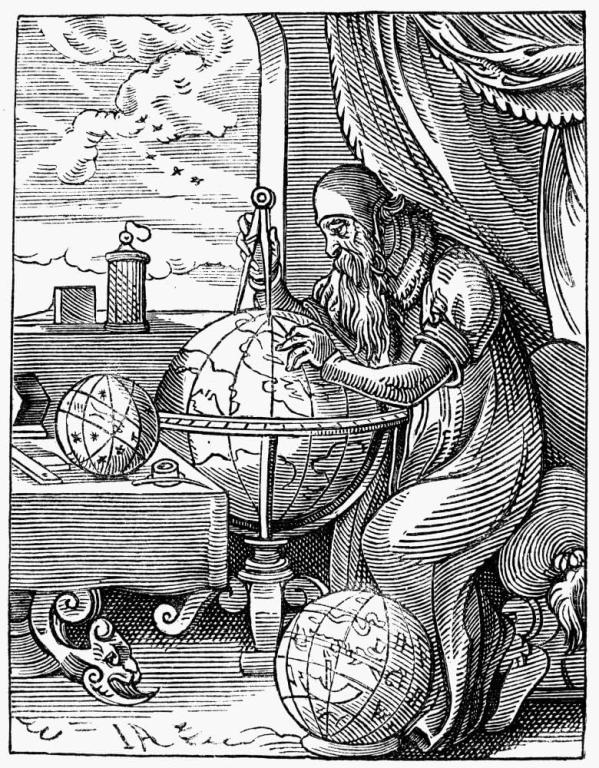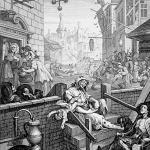“Dover Beach”
Matthew Arnold
It appears the most common usage in Christian circles for “Christian atheism,” is “someone who believes in God but acts as if they don’t.” This of course is fed by the ancient canard that an atheist, without the fear of punishment or belief in reward, is going to be unethical, and probably a danger to society. But, as it turns out, the term has more meanings than shaming Christians who aren’t doing whatever the specific author thinks is supposed to be “real” Christianity.
When I read this I found myself reflecting on what happens to religion when confronted with what feels the harsh challenges of the scientific venture and the completely natural world that it models. The headlines tend to go to the fundamentalist reaction. And there’s good reason for that. But there are other things going on as well. And they have long captured my heart.
The middle of the twentieth century was rich in this reflection. As an example we see Gabriel Vahanian’s groundbreaking 1961 The Death of God: The Culture of our Post-Christian Era. He criticized the secularization going on all around. There were a lot of rejoinders. And the conversation was heated.
Among the better known contributors was Thomas J. J. Altizer. Altizer was an Episcopalian, and early in his career as a theologian also pursued ordination. The Wikipedia article about him says he failed the psychiatric test. Which triggered a memory for me, when I went through a panel on my way to ordination within the Unitarian Universalist Church. The psychologist who ran the tests said to me, “James, you’re very fortunate you’re a UU and not an Episcopalian.” In my case I showed some anti-authoritarian traits, which I gather at least at that time in the late nineteen eighties was a death sentence for anyone aspiring to the Episcopal priesthood. He added I should do well as a Unitarian minister.
That aside noted, Altizer was one of several theologians in middle of the twentieth century particularly inspired to some degree by a series of theological and dialectical steps inspired by Hegel, leading through Jesus’ death as also God’s death. Different writers had different views of what that meant. One version is the God died with Jesus. It appears to me that for Altizer this was a real death. A real God who really died. Real needing some unpacking, no doubt.
Paul Tillich largely preceded the Death of God movement. But his rejection of classical theism in favor of a “ground of being,” shows another thread of a Christian atheism. And one I find more attractive, personally. As I was first shaping my spiritual thinking, trying to make sense of my experiences in the world and as someone seriously engaged in a spiritual quest, I was deeply moved by Tillich’s Courage to Be. Until I found Zen it was a particular beacon.
Jewish thinkers in the twentieth century confronting the reality of the Holocaust have also wrestled with death of God themes. One important Jewish theologian Richard Rubenstein suggested God died in creating the world. God ceases to be the deity of popular understanding, and instead is an emergent historical process. I’m very taken with this sense of God as history, pushing my pantheistic inclinations. I’ll return to this.
A persistent theme is the loss of transcendence in modernity. This movement, apparently irresistible in the Global North, is toward naturalism and secularism. Maybe the most interesting, at least for me, of the current crop of thinkers who might justly be called Christian atheists, or atheist Christians is Don Cupitt.
Don Cupitt is an Anglican priest and professor at Cambridge. Through a book, the Sea of Faith, and a television series based on the book, Father Cupitt launched a loose movement of naturalistic Christian theologians. Cupitt and the Sea of Faith movement in general take a “non-real” approach to God, rejecting all supernaturalism. A difficult locution, I find, meaning God has no “real” existence outside of language and culture. God is a cultural artifact.
And here I find something important. God is real, real not in the classic Abrahamic sense, but real as an image. As a sign. Metaphor as a term falls short here. But in there somewhere, something more than metaphor or analogy, but not history, either. A place to find truths. Maybe, and I like to call it, the dreamlands.
Here I also find a coalescing with Pragmatism, a largely American stance championed by John Dewey and William James, among others. As has been said, “Pragmatists contend that most philosophical topics—such as the nature of knowledge, language, concepts, meaning, belief, and science—are all best viewed in terms of their practical uses and successes.” Here we can see that philosophical topic, that word, that sign, can be God, it can be religion.
I also find it really interesting that Don Cupitt and the Buddhist “atheist” Stephen Batchelor are dialogue friends. Actually there seem to be Buddhist connections in the whole area of Christian atheism possibly starting with Thomas Altizer. Each is unconcerned with the supernatural elements of their faith traditions, but continue to see potentially enormous value in the traditions as human artifacts, the culmination of ages of spiritual inquiry. Spiritual may be more psychological and social here, but, real. It can heal. And, importantly, it can kill. With that real found through the non-real God. Or, for Batchelor, a non-real Buddhism.
I don’t care for the term non-real, but I find what it speaks to of enormous importance. At least to me, personally. But I think possibly to many others, as well.
A major question for our time and place where the supernatural aspects of religions are increasingly hard to support. Where God has been reduced to the cracks of science, and any idea of human beings standing in any way outside the flow of natural events seeming absurd on the face of it, well, what does this mean?
Well. Of course. One can just walk away from religion and its languages. Secularism. In the Global North its all around us, it’s actually quickly becoming the air we breathe and the water we drink.
Although it often seems to be a path to despair. I looked and it seems about one in twenty among us are regularly using prescription medications for anxiety. And, for most of those, I think its important they have that help. A lot more are self-medicating in all sorts of different ways. Again, I’m not really against that. With a lot of “buts” and “ands.” In a secular world the only response that makes a lot of sense to me is existentialism. Existentialism courting nihilism. Hoping to find meaning in the face of meaninglessness. Lots of anxiety there.
Or, another option. There is a digging into the deep soil of our received religions, reframed. But still alive.
And honestly, I think we’re looking at a lot more than feeling a little better. There is always that mystical element. But even this other aspect, the bigger part, there are terribly important things for us as human beings.
For me the problem starts with what I discerned as the problem with religion. At least it seemed that way, at first. In my studies I noticed what mattered to me, the questions of spirituality and specifically nonduality, at best accounted for a tiny fragment of what usually gets called a religion. Never to forgotten. And then all that other stuff of our cultures, of being human together. Our traditions and rites. Our markers on the way of life and death.
So, there’s a place for naturalistic religions. Naturalistic religion is one popular term within Unitarian Universalist world. Since the eighteenth century rational religion and liberal religion have been stalwarts of this inclination.
Most of religion is about culture. Framed generously religion is about cultural cohesion. Framed more harshly, it’s about crowd control. But is there more to this? Especially as we take the teachings of religions non-realistically, as hard earned metaphors for deep matters. Matters that may or may not touch on ultimacy and my concerns with touching the real. Although I find myself wondering more and more these days whether that ninety plus percent of religion is more important than I’ve given it credit for in my sharp focus on the deep aspect of religion as a mystical path of union.
I think of Mordecai Kaplan the founder of Jewish Reconstruction. In my years as a UU parish minister, two of the churches I served housed Reconstructionist congregations. I loved them. On the one hand they were enthusiastic, whole hearted observers of the tradition. When I think of the theologians I tend to think of logicians, theoretical, and frankly, often bloodless. Reconstruction shows something different.
Their services ran on, sometimes for hours, filled with singing and procession, and on occasion dancing. To the casual observer they looked remarkably like Orthodox. But. Women counted for minyan. And I knew for a fact many were agnostics or atheists. Originally Orthodox, Rabbi Kaplan’s approach to the tradition was pragmatic. As he would say of the traditions, the have a vote, not a veto.
Another line for this is engaging one’s religious tradition seriously but not literally.
I’ve seen “atheist” churches as nostalgic pop ups, where people can go and play church. The groups appear to have little staying power. This does not seem to be the case of Reconstructionist congregations. They may reject orthodoxy, but they’re all about orthopraxy. I believe there’s something really important in this. And it occupying much of my reflection these days.
For me, when these things all come together, I find God is a koan. And with that my spirituality falls into place.
I sit in a place where all of this flows together in my life. My cultural Christianity, my engaged Zen Buddhism, and my naturalistic disposition which aligns with the modern scientific world view.
I think about naturalistic religion. I think about liberal religion.
I think about why it makes sense rather than simply slipping into secularism. And with that, what might it look like? Where is the orthopraxy of natural religion? And with that how much can it stretch? I wonder of the meeting of Buddhism and Christianity in particular. And what might happen in that rich place given the possibilities of naturalistic religion.
What a rich and hard moment we live in.
More to come…














